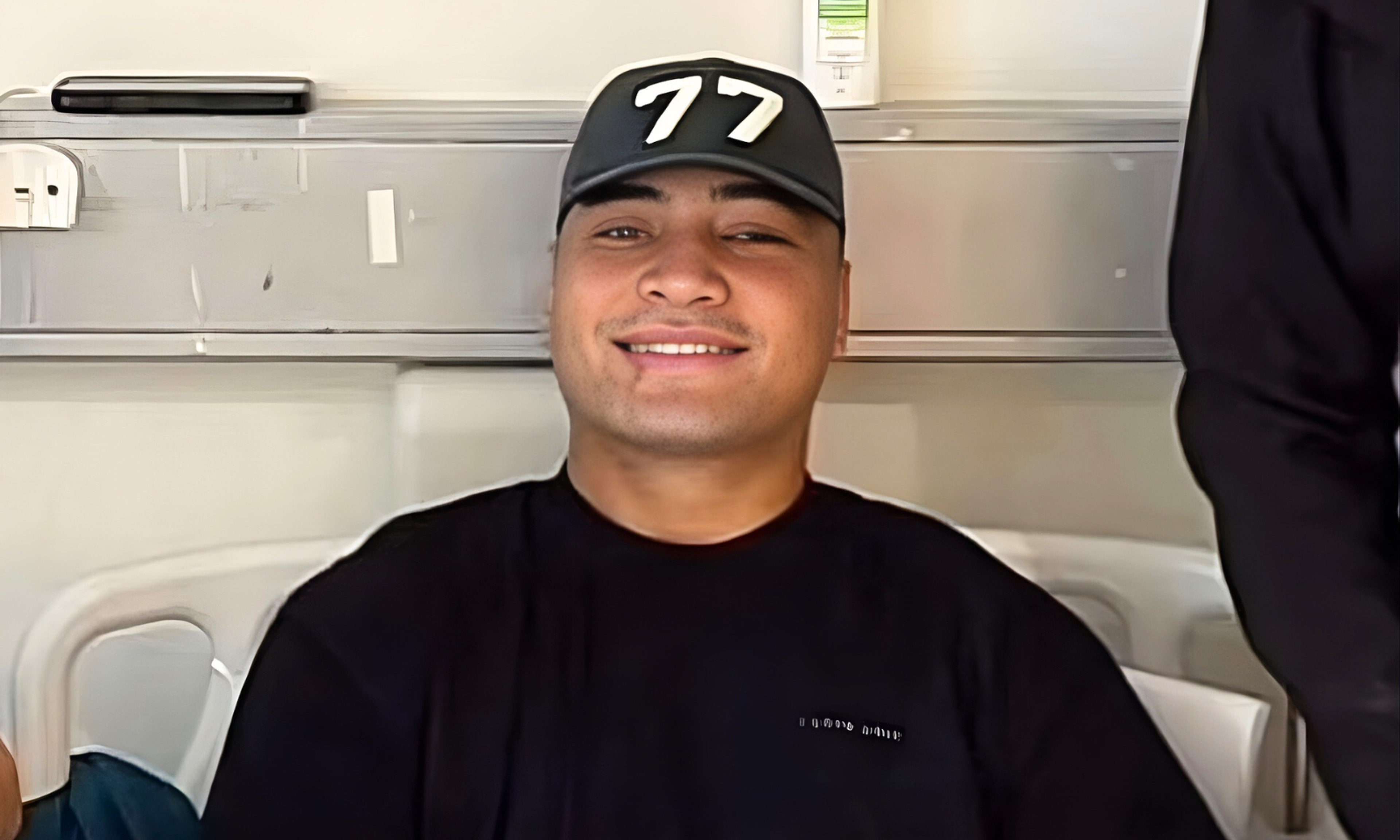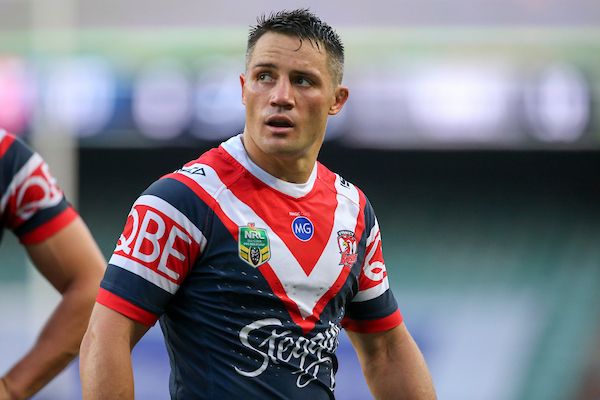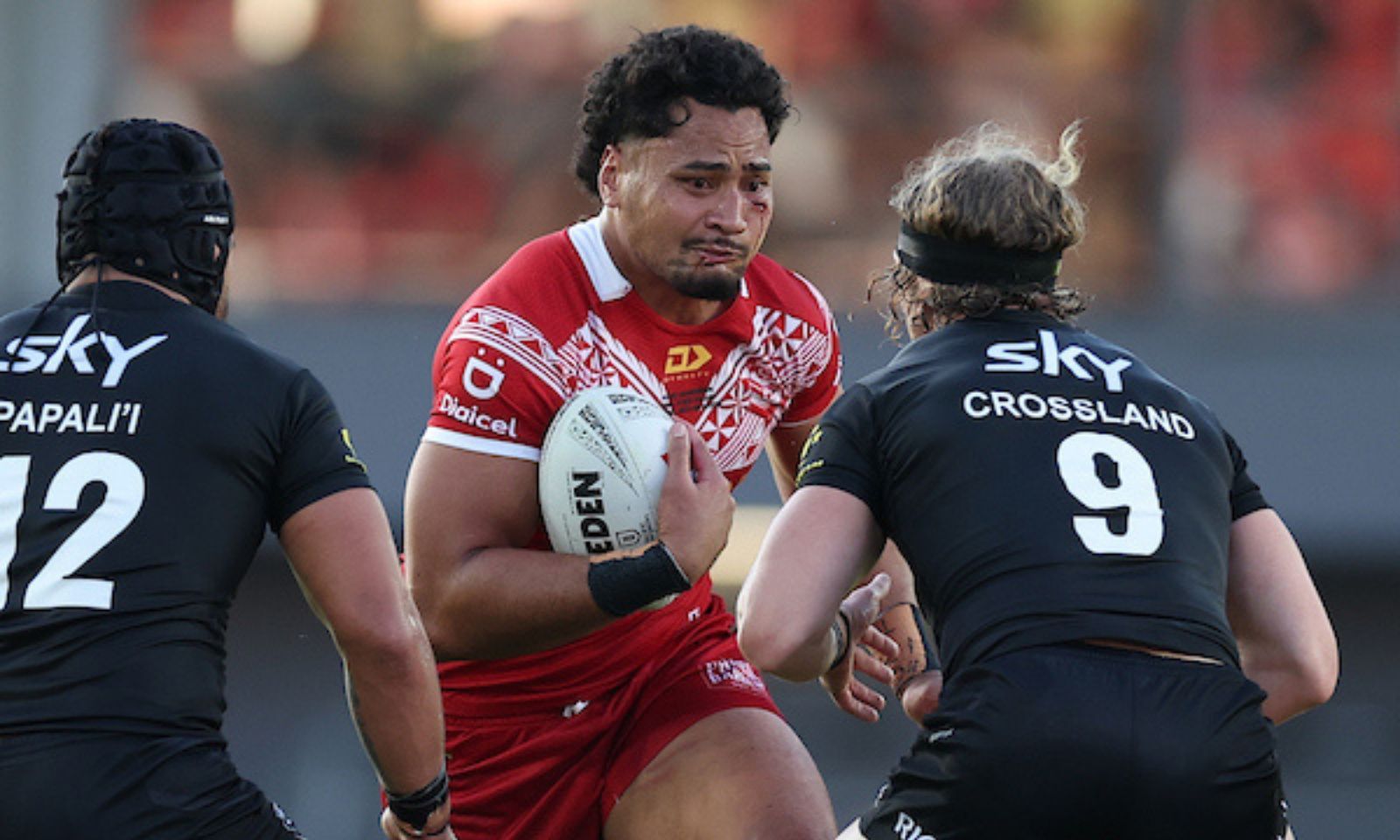

Eli Katoa underwent emergency brain surgery and faces a long rehabilitation, with his future in rugby league uncertain.
Photo/Facebook
Rugby League legend demands change after Katoa's brain injury
Cooper Cronk has called for full accountability, warning the NRL must ensure this never happens again.


Moana Pasifika end Lautoka curse to win 'Battle of the Pacific'


A.R.T sets new Pacific music pace with ‘First Thursday’ releases


Moana Pasifika end Lautoka curse to win 'Battle of the Pacific'


A.R.T sets new Pacific music pace with ‘First Thursday’ releases
Rugby league legend Cooper Cronk has delivered an emotional plea for change after Melbourne Storm star Eliesa 'Eli' Katoa suffered a serious brain injury while playing for Tonga, calling the incident “very upsetting” and warning it “should never happen again".
The 25-year-old second-rower suffered three head knocks during a single 90-minute game, with the final blow causing seizure activity on the bench and requiring urgent brain surgery.
Katoa was stabilised on the sideline before being rushed to the hospital in Auckland, and has since returned to Melbourne.
The Melbourne Storm confirmed Katoa will miss the entire 2026 NRL season and says he faces a “long road ahead in his recovery,” with it still unclear if he will ever play in the NRL again.
“He’s struggling to process it all, obviously,” Storm chief executive Justin Rodski told the Sports Entertainment Network.
“His passion and love is rugby league, and for that to be taken away from him is pretty devastating. We certainly hope he’ll be back, but it’s in the hands of the doctors and the medical experts.”

Cooper Cronk has called for the NRL to investigate Katoa’s injury and ensure player safety is never compromised again. Photo/Photosport/David Neilson
Cronk demands accountability
Cronk, speaking on the Kayo Sports NRL Podcast, called for transparency from the league’s leadership. He described Katoa’s injury as a case where a player “slipped through the cracks” despite the NRL’s strict concussion protocols.
“This whole story is very upsetting from a lot of angles," he says. "This simply cannot happen. It should never have happened. Peter V’landys and Andrew Abdo need to make sure this never happens again. If it is sanctions, if it is a thorough investigation… someone needs to come out publicly and explain the situation.”
Cronk emphasised the wider implications for the sport, particularly for young players and families, saying procedures must be tightened to protect players at all levels.

Eliesa ‘Eli’ Katoa Eli Katoa suffered three head knocks during a match for Tonga, leaving him sidelined for the 2026 NRL season. Photo/Photosport/Fiona Goodall
“We have mums and dads and family members who love our game, they go off and play junior rugby league every weekend,” he says. “I don’t think we can let this one slip through… it needs to be researched, investigated, and there needs to be something delivered publicly around why this will never happen again.”
Steve Roach, a legendary enforcer, echoed Cronk’s concerns, highlighting how attitudes toward head injuries have changed. “I’m glad it’s changed.
“It used to be if you had a bad head cut or a bad knock, it was a badge of honour to stay out there. This culture had to change, and it has, because there is a lot of blokes struggling at the moment.”
A career in limbo
Katoa’s series of head knocks began in the warm-up with a collision with teammate Lehi Hopoate, followed by a first-half impact that required a head injury assessment, which he passed.
A second-half collision forced him off again, culminating in seizure activity on the bench and urgent surgery to relieve pressure on his brain. Cronk and Roach both say that while concussion management has improved since their playing days, gaps in the current system remain.
“The way the game is protected today, that never should have happened,” Cronk says. “It’s as simple as that, someone should be responsible, something should come of it. I would encourage Peter and Andrew to find out exactly what happened and make sure it never happens again.”
Watch Cooper Cronk and Steve Roach on the NRL Podcast with Lara Pitt below.
The Storm’s football director, Frank Ponissi, flew to Auckland to assist with Katoa’s care, and the club has laid out a detailed rehabilitation plan.
Rodski says while Katoa won’t play next season, the club is hopeful about a possible return if medical assessments clear him.
“He’s got a series of tests and assessments and a rehabilitation plan with milestones he’ll need to tick off in the coming weeks and months,” Rodski says. “If he continues to improve and is ultimately cleared by medical experts to return to training and playing, we’ll be supportive of that.”
Katoa’s injury has reignited discussion across the NRL about concussion protocols, player safety, and the responsibility of administrators to prevent such serious injuries.
Cronk’s call for transparency and accountability underscores the need for continued vigilance and reform in protecting players both on and off the field.